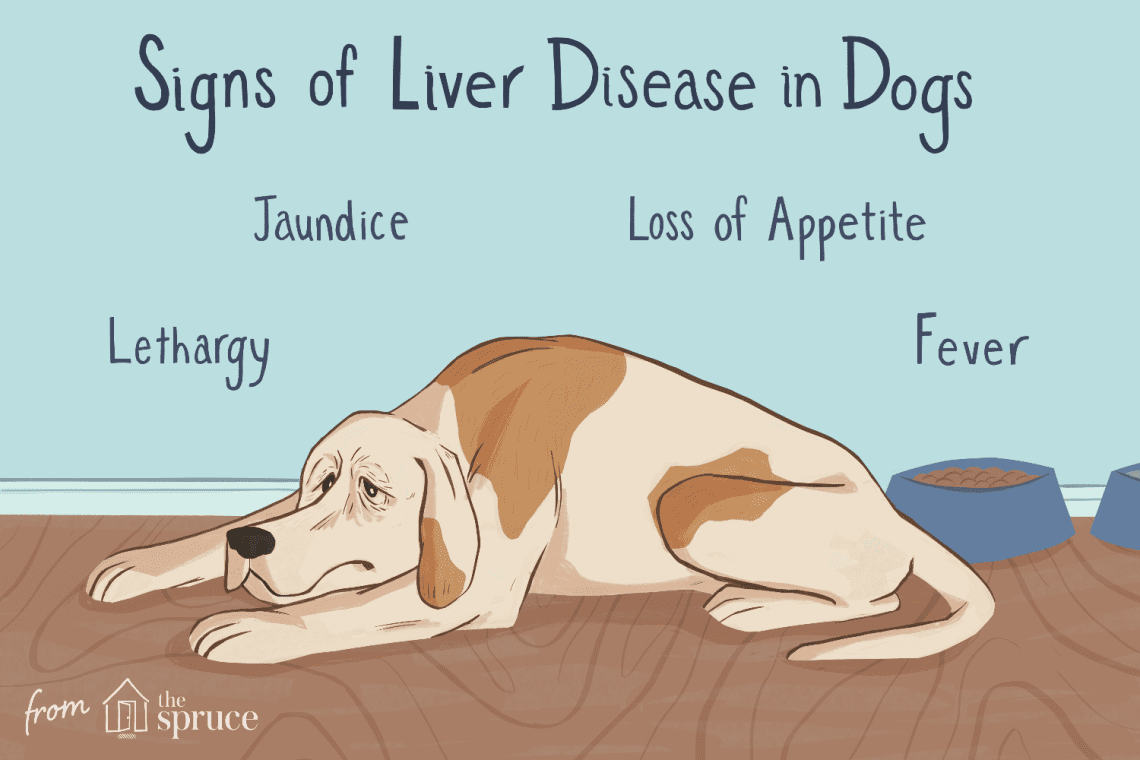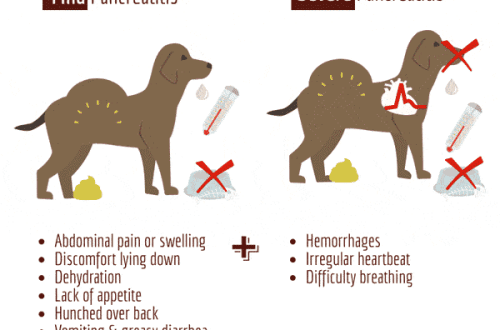
Liver Disease in Dogs: Symptoms and Treatment
If your pet suddenly shows symptoms of liver disease or is diagnosed by a veterinarian, there is no need to worry. Liver disease in dogs is common and most often treatable. However, early diagnosis can be critical for effective treatment and prevention of liver failure in an animal. While signs of liver disease in dogs may not be noticeable, you should check your pet’s health regularly and follow the advice of a veterinarian. How to prevent liver disease in dogs?
Contents
Strength baked
The liver is an amazing multifunctional organ. It is located between the stomach and the diaphragm. The functions of the liver are no less important than its strategic location in the body:
- digestive: helps break down nutrients and digest fats;
- antitoxic: removes toxins from the blood;
- immunological: can produce proteins that help the blood clotting process;
- metabolic: helps break down fats for energy and carbohydrates for blood sugar regulation.
Causes of Liver Disease in Dogs
Liver disease in dogs of small breeds, as well as large breeds, can occur when any of these functions is violated.
The most common causes of liver disease in dogs are:
- infectious hepatitis. Hepatitis is a general term used to describe inflammation in the liver. Fortunately, vaccines help prevent many of the infections that cause it.
- Toxic hepatopathy, or hepatotoxicity. According to the Merck Veterinary Manual, there are a number of toxins that can cause liver disease in dogs.
- Vacuolar, or endocrine, hepatopathy (VH), in particular Cushing’s disease, thyroid disease and diabetes mellitus. These are one of the most common causes of liver problems in dogs and require treatment.
- Portosystemic shunts – Abnormal vessels that carry blood around the liver. This can lead to an excess of toxins in the bloodstream and cause liver disease.
- Cancer roasted. It can develop in the tissues of the liver or penetrate there from other parts of the body.
- hereditary liver disease. These include Wilson’s disease in Bedlington Terriers, West Highland White Terriers, and other breeds, as well as amyloidosis in Sharpeis.
- Idiopathic chronic hepatitis. This inflammatory condition may be of autoimmune origin. It can also be affected by infectious diseases of the liver.
While there may seem to be many causes of liver disease in dogs, most are preventable and all treatable to some degree.
Causes of Liver Failure in Dogs
Among the main reasons are the following:
- ingestion of toxins, such as the artificial sweetener xylitol, into the digestive system;
- excessive heat or heat stroke;
- infection.
- In all these cases, early intervention can prevent liver failure in the dog.
Symptoms of liver disease in dogs
The most common symptoms of a diseased liver in a dog are gastrointestinal problems such as vomiting and diarrhea, jaundice – yellowing of the skin, gums, and whites of the eyes, and feeling unwell, including general malaise, fatigue, and poor appetite.
To rule out signs of liver disease in dogs, a veterinarian should examine the results of blood and urine tests. They may also order X-rays, ultrasounds, CT scans, and/or MRIs. In some cases, a biopsy may be needed. Most dogs with liver disease have elevated levels of liver enzymes, the organ is too small or too large in size, and pathological changes in its tissues are also observed.
Symptoms of liver damage in dogs
Liver failure in dogs is usually accompanied by severe gastrointestinal disturbances, neurological abnormalities, and problems with blood clotting. With poor blood clotting, the dog may begin to bleed from the nose, and may also bleed gums and bruise. Owners may also notice bloating and odd behavior in the pet.
And if liver disease in dogs usually develops gradually, then liver failure in most cases occurs quickly. However, with timely intervention, liver failure in dogs is reversible.
Treatment of Liver Disease and Liver Failure in Dogs
Most liver diseases are believed to be treatable. Once a veterinarian has identified the cause of a pet’s illness, they can relieve the symptoms and address the underlying cause with medications, nutritional supplements, dietary changes, and sometimes surgery. Chronic liver disease that develops slowly is usually easier to detect and treat. Acute liver disease, which often leads to liver failure, is usually more complex.
When treating acute liver failure in dogs, time is one of the most important factors. Standard treatments include aggressive supportive care with liquid medicines and gastrointestinal protection and antibiotics. Antidotes are used if poison has entered the animal’s digestive system.
Diet for liver disease in dogs
To maintain a healthy liver in a dog, it must be fed with a well-digestible and sufficiently high-calorie food. If your pet does not have special nutritional needs, it is better to buy food that says “complete and balanced” on the label. It will help maintain ideal levels of sodium, chloride, potassium and other minerals.
Before feeding your pet food specially formulated for dogs with liver disease, you should first consult with your veterinarian.
Choosing the right food for your dog is of the utmost importance in preventing liver problems. But it is equally important to pay attention to the general health of the pet. With early detection and timely intervention, many medical problems, including liver disease, are treatable.
See also:
What you need to know about kidney disease in dogs
Most Common Diseases in Older Dogs
Diseases for which no vaccine has been developed





